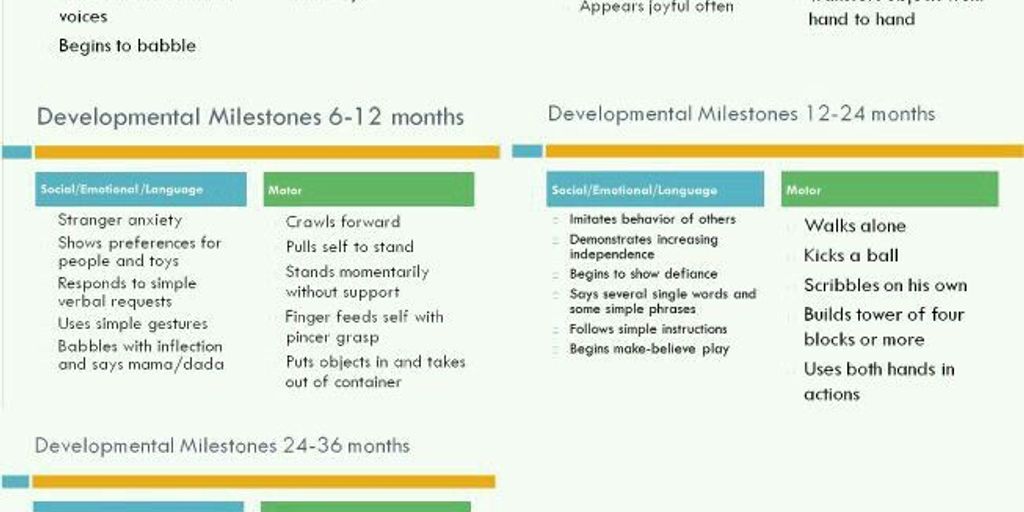
Positive parenting practices are essential for cultivating a nurturing and supportive home environment that promotes the emotional growth and well-being of children. Implementing effective communication strategies, providing emotional support, and engaging in family bonding activities are fundamental components of a positive family dynamic. This article provides expert tips on creating a harmonious family atmosphere where every member can thrive.
Key Takeaways
- Effective communication with your children is fundamental for nurturing a positive environment at home.
- Setting clear boundaries and providing emotional support are key components that contribute to a positive family dynamic.
- Engaging in regular family bonding activities strengthens the emotional connection between family members.
- Practicing self-care is crucial for parents to maintain their well-being and effectively support their children.
- Addressing and resolving family conflicts in a constructive manner promotes a harmonious and understanding home environment.
Effective Communication Strategies
Employing effective communication strategies ensures that you connect with your child on a deeper level. Using age-appropriate language allows you to convey your message in a way that is easily understood and relatable. Encouraging the expression of thoughts and feelings creates a safe space for your child to share their experiences. Additionally, setting aside dedicated time for conversation demonstrates a commitment to actively listening and understanding their perspectives, fostering a sense of trust and mutual respect.
Active Listening Techniques
Active listening is a crucial component of effective communication. It involves fully concentrating, understanding, and responding thoughtfully to what your child is saying. This can be achieved by:
- Making eye contact
- Nodding and using affirmative words
- Reflecting back what your child has said
Encouraging Open Dialogue
Encouraging open and honest conversations is essential for building a strong parent-child relationship. Create an environment where your child feels comfortable expressing their thoughts and feelings without fear of judgment or punishment. This can be done by:
- Asking open-ended questions
- Validating their feelings
- Avoiding interruptions
Non-Verbal Communication Cues
Non-verbal communication plays a significant role in how we convey messages. Pay attention to your body language, facial expressions, and tone of voice, as these can greatly impact how your child perceives your message. Positive body language can reinforce your words and help your child feel more understood and supported.
By adopting these communication techniques, parents can establish a foundation of trust, promote understanding, and effectively navigate challenges together. Clear and open communication ultimately contributes to a harmonious family dynamic and the well-being of the children involved.
Building Emotional Support Systems
Creating a safe space for children to express their emotions is crucial for their emotional development. Encouraging open expression of feelings allows children to process and communicate their emotions effectively. Co-parents can actively listen, validate their children’s emotions, and provide a safe space for them to express themselves without judgment or criticism. This fosters emotional intelligence and resilience.
Validating feelings is an essential part of emotional support. When parents acknowledge and validate their children’s emotions, it helps them feel understood and valued. This can be done through simple affirmations like, "I understand you’re feeling upset," or "It’s okay to feel sad sometimes." Such validation encourages children to be more open about their feelings in the future.
Offering consistent encouragement is another key aspect of building emotional support systems. Parents should regularly praise their children’s efforts and achievements, no matter how small. This not only boosts their self-esteem but also motivates them to keep trying and improving. Consistent encouragement helps children develop a positive self-image and a growth mindset.
Setting Clear Boundaries and Expectations
Clear expectations are vital for managing behavior challenges effectively. Children thrive when they understand what is expected of them. Start by setting clear, developmentally appropriate rules and boundaries. Clearly communicate these expectations to your child and reinforce them consistently. When expectations are unclear, children can become confused, leading to behavioral challenges. Consistency is key – be sure to follow through with consequences when expectations are not met.
Engaging in Family Bonding Activities
Family bonding activities play a vital role in enhancing relationships and fostering a supportive home environment. For example, planning regular family outings, game nights, or shared meals provides opportunities for quality time spent together, promoting unity and connection. These activities not only enhance communication and trust but also encourage collaboration, teamwork, and mutual respect within the family unit. By participating in such bonding activities, families can create lasting memories and strengthen their emotional connections.
Planning Regular Family Time
Creating opportunities for quality time and bonding with your child is essential for building a strong parent-child relationship. Engaging in bonding activities strengthens the emotional connection and fosters a sense of togetherness. Family game nights provide a fun and interactive way to connect and create lasting memories. Outdoor adventures, such as hiking or picnics, not only encourage physical activity but also provide opportunities for exploration and shared experiences.
Participating in Shared Hobbies
Shared hobbies offer a unique way for family members to connect on a deeper level. Whether it’s cooking, gardening, or crafting, these activities allow for collaboration and mutual enjoyment. Dancing is one of the most simple fun bonding activities that works for family members of all ages. Take turns picking the music and showing off your best dance moves.
Celebrating Family Traditions
Family traditions create a sense of continuity and belonging. Celebrating holidays, birthdays, or even weekly rituals like Sunday dinners can strengthen family bonds. These traditions provide a framework for shared experiences and memories, fostering a sense of identity and unity within the family.
Furthermore, family bonding activities have been shown to have a positive impact on mental health and overall well-being. Research indicates that families who engage in shared experiences and quality time together experience lower stress levels and improved emotional health outcomes. By prioritizing family activities that promote fun, laughter, and togetherness, parents can create a positive and supportive atmosphere that benefits every member of the family.
Practicing Self-Care for Parents
Prioritizing Mental Health
Promoting self-care among parents is critical for maintaining a positive family environment. When parents prioritize self-care behaviors, such as setting aside time for relaxation, exercise, or hobbies, they demonstrate the importance of personal well-being to their children. By modeling self-care practices, parents show their children that taking care of oneself is essential for physical and emotional health, creating a culture of self-awareness and emotional well-being within the family.
Finding Time for Personal Interests
Moreover, self-care routines not only benefit individuals but also contribute to the collective wellness of the family. When each family member prioritizes self-care, they are better equipped to manage stress, navigate challenges, and maintain a positive mindset. For example, engaging in activities that promote relaxation, mindfulness, and self-reflection can help family members recharge and approach interactions with a renewed sense of calm and positivity.
Seeking Support Networks
Cultivating patience and understanding as parents is essential for maintaining a healthy and supportive relationship with your child. Understanding their developmental stages and challenges allows you to respond with empathy and adapt your approach accordingly. Strategies like taking breaks and prioritizing self-care enable you to recharge and approach parenting with a refreshed mindset. Seeking support from others and utilizing available resources provide valuable insights and guidance during challenging times.
Self-care helps parents stay grounded, present, and healthy. Move your body, go to bed earlier, try deep breathing, and reconnect (or discover) hobbies.
Addressing and Resolving Family Conflicts
Conflicts within a family are inevitable, but they can provide valuable opportunities for growth and learning. By addressing disagreements constructively and encouraging open communication, families can navigate challenges together, build resilience, and deepen their emotional connections. When parents model effective conflict resolution skills and encourage children to express their feelings and opinions, it creates a safe space for open dialogue and mutual understanding, fostering a positive family dynamic.
Conflict Resolution Techniques
Effective conflict resolution strategies, such as active listening, compromise, and seeking common ground, play a significant role in promoting understanding and strengthening relationships within the family unit. For example, when family members engage in open discussions to address conflicts, it not only helps find solutions but also fosters empathy, respect, and trust among family members.
Promoting Empathy and Understanding
Moreover, conflicts can provide valuable opportunities for growth and learning within the family setting. By addressing disagreements constructively and encouraging open communication, families can navigate challenges together, build resilience, and deepen their emotional connections. When parents model effective conflict resolution skills and encourage children to express their feelings and opinions, it creates a safe space for open dialogue and mutual understanding, fostering a positive family dynamic.
Seeking Professional Help When Needed
Sometimes, conflicts may require external intervention. Family therapy can be an invaluable resource in these situations, helping families develop a sense of mutual respect and practice positive conflict resolution skills. Identifying sources of conflict within the family and working through them with a professional can lead to healthier and more harmonious relationships.
Cultivating a Supportive Environment for Children
Creating a supportive environment for children involves fostering a space where they can learn, grow, and develop their emotional resilience. Encouraging open communication, expressing love, and providing consistent encouragement are fundamental aspects that help children feel valued and supported within the family unit. By actively listening to children’s thoughts and feelings, parents demonstrate that their voices matter, creating a sense of belonging and trust that is essential for their development.
Encouraging Positive Self-Talk
Positive self-talk is crucial for building a child’s self-esteem and confidence. Parents can model positive self-talk by verbalizing their own positive thoughts and encouraging their children to do the same. This practice helps children develop a healthy inner dialogue and a positive outlook on life.
Fostering Independence
Fostering independence in children involves giving them opportunities to make choices and take on responsibilities appropriate for their age. This can include simple tasks like choosing their clothes or helping with household chores. By allowing children to make decisions, parents help them develop problem-solving skills and a sense of autonomy.
Providing Educational Support
Providing educational support means creating an environment that promotes learning and curiosity. This can be achieved by having educational toys, books, and resources available at home. Additionally, parents can engage in activities that stimulate their child’s interest in learning, such as visiting museums, reading together, or exploring nature.
Conclusion
In conclusion, positive parenting practices are essential for creating a nurturing and supportive home environment that fosters the emotional growth and well-being of children. By setting clear boundaries, providing emotional support, and engaging in effective communication, parents can cultivate a harmonious family dynamic. Prioritizing open dialogue, empathy, and respect helps in building a safe and supportive space where every family member feels valued and connected. The benefits of such an environment are far-reaching, contributing to the overall happiness and emotional health of the entire family. By investing in these strategies, parents lay the foundation for a resilient and loving family unit that thrives together.
Frequently Asked Questions
What is positive parenting?
Positive parenting focuses on nurturing, guidance, and encouragement rather than punishment. It involves setting clear boundaries, offering emotional support, and fostering open communication to create a harmonious family environment.
How can I improve communication with my children?
Effective communication strategies include practicing active listening, encouraging open dialogue, and being mindful of non-verbal communication cues. These techniques help build trust and understanding between parents and children.
Why is it important to set clear boundaries and expectations?
Setting clear boundaries and expectations helps children understand what is acceptable behavior and the consequences of their actions. It creates a structured and secure environment, promoting accountability and respect.
What are some ways to build emotional support systems within the family?
Building emotional support systems involves creating a safe space for open expression, validating feelings, and offering consistent encouragement. These practices help children feel valued and understood.
How can parents practice self-care while managing family responsibilities?
Parents can practice self-care by prioritizing their mental health, finding time for personal interests, and seeking support networks. Taking care of themselves enables them to be more present and effective in their parenting roles.
What should I do if family conflicts arise?
Addressing and resolving family conflicts involves using conflict resolution techniques, promoting empathy and understanding, and seeking professional help if needed. These approaches help maintain a harmonious family environment.






